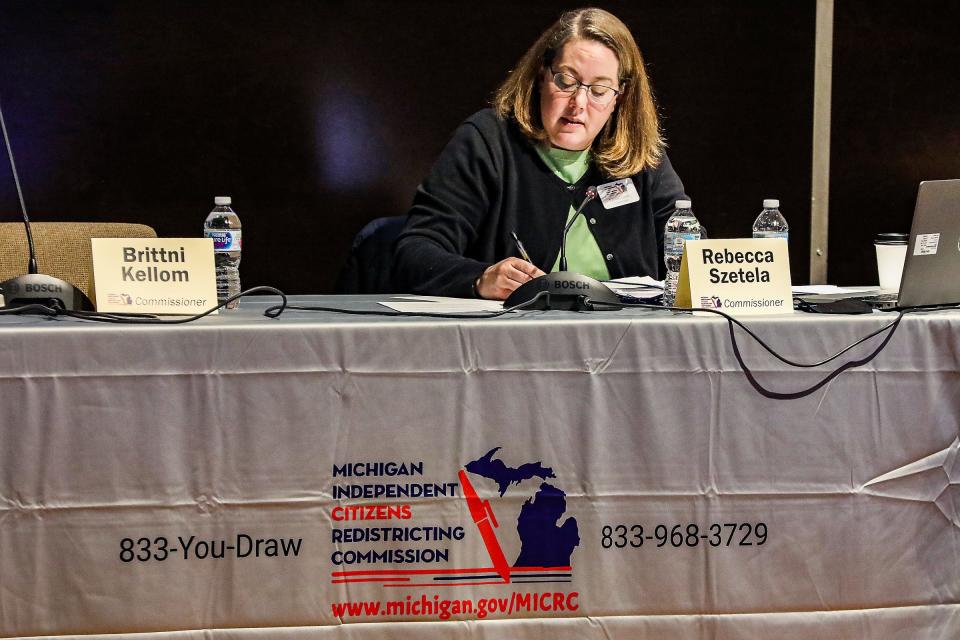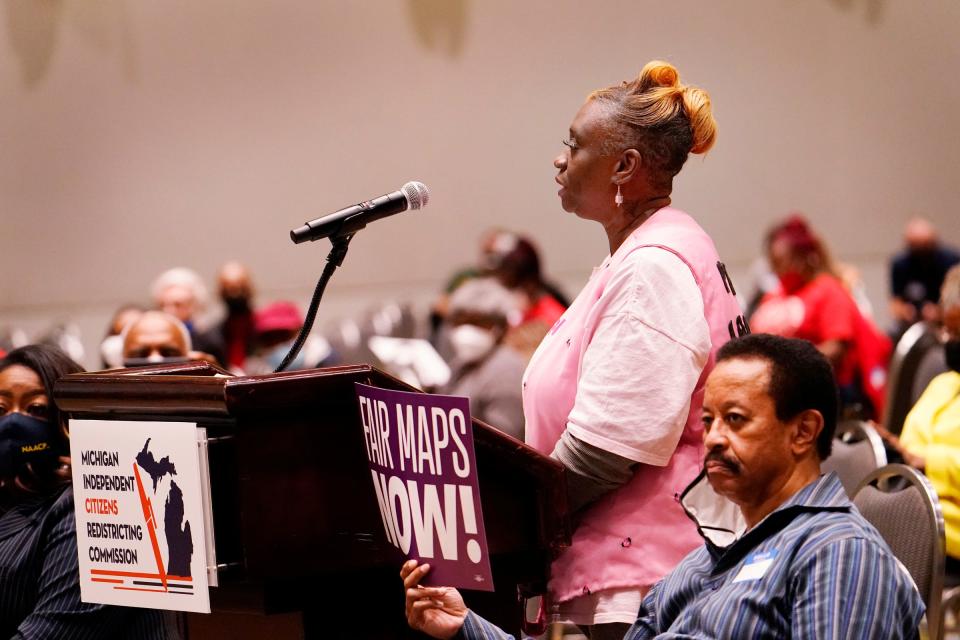Michigan redistricting commissioners recount mapping: 'a horrendous experience'
KALAMAZOO − If the first day of the federal trial in a redistricting lawsuit challenging metro Detroit legislative maps resurfaced the pressure the inaugural group of citizen mappers in Michigan felt while drawing new lines, the second day largely took a hard turn toward the numbers with statistic-heavy testimony.
On Wednesday, members of the Michigan Independent Redistricting Commission kicked off the trial by recounting to the three-judge panel why they applied to join the group and the stress they endured. They shared the challenges they felt weighing public comments from Detroiters pleading with the commission to preserve majority-Black districts against advice from their legal experts that resulted in districts with significantly lower shares of Black voters.

Independent redistricting commissioner Rebecca Szetela recounted her own experience observing racial discrimination living outside of Detroit. She started crying when she shared a story about growing up in Dearborn: A Black family moved in nearby, prompting neighbors to obtain "for sale" signs from real estate agents to indicate they were not welcome there.
Democratic commissioner M.C. Rothhorn said he applied to serve on the commission because he's passionate about democracy. "So I just thought I'd do my best jury duty ever," he said. He called the mapping process "emotionally challenging." At one point his voice began shaking when he said that the commissioners were trying to do the job right.
Erin Wagner, a Republican commissioner, had few fond memories to share from her time on the commission. "It was a horrendous experience," she said.
The second trial date Thursday took a pivot from the commissioners' personal experiences, beginning with a deep dive into data lawyers for the group of voters suing the commission have wielded to assert that the commission splintered Black voters across too many districts and diluted their voting power.
Sean Trende — an expert witness for the plaintiffs who works as a senior elections analyst for the political news website RealClearPolitics — spent the bulk of the second trial day testifying. Plaintiffs' attorneys came armed with maps and charts from Trende, who delivered testimony laden with redistricting jargon.
But while the three-judge panel drilled down on aspects of his methodology, he made his overarching conclusion clear: The redistricting commission paired some of the poorest parts of Detroit with some of the wealthiest suburbs to produce districts that stand out as statistical outliers for the low share of the Black voting-age population in them.

Trende walked the panel through his analysis of the racial voting patterns in the recent 2022 Democratic primary, which he says shows in some cases, white voters backed a different candidate than the one preferred by Black voters to deny victory for the Black candidate of choice. He zeroed in on an incumbent-on-incumbent primary in Senate District 8, which includes some northwest Detroit neighborhoods and extends north through Birmingham. In that district's primary last year, state Sen. Mallory McMorrow — who is white — defeated then-state Sen. Marshall Bullock II — who is Black — because white voters "overwhelmingly" voted against Bullock, the Black-preferred candidate, according to Trende.
"This looks like something out of Alabama in the 1960s," Trende said. He said under the commission's maps, Detroit's Black caucus could dwindle to a number that could fit in the back of a "taxi" in the state Senate and an "Uber XL" in the state House.
Michigan redistricting: Trial kicks off in voting rights lawsuit challenging Detroit-area districts
Former state lawmakers Virgil Smith and LaMar Lemmons III — both Black Detroiters — also took the witness stand Thursday to share stories about difficulties Black candidates face campaigning in predominantly white areas, from white people who wouldn't open the door for canvassers to candidates being called the N-word. They said a lack of Black representation leaves certain issues off the table in Lansing such as criminal justice and reparations, among others.
Smith pointed out legislative action taken by Democratic majorities in Lansing such as repealing Michigan's right-to-work law allowing those in unionized workplaces to opt out of paying union dues or fees and efforts to protect LGBTQ+ rights.
"What do we get?" Smith asked.
Contact Clara Hendrickson: chendrickson@freepress.com or 313-296-5743. Follow her on X, previously called Twitter, @clarajanehen.
This article originally appeared on Detroit Free Press: Michigan redistricting voting rights trial surfaces emotion

